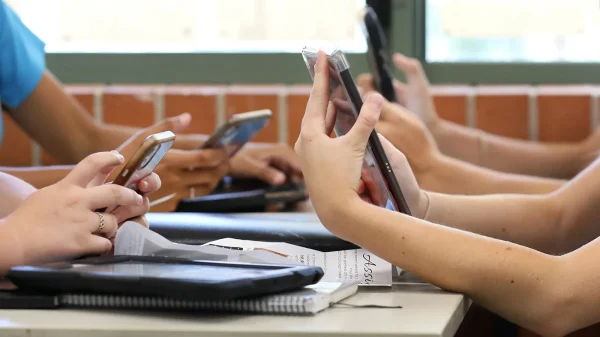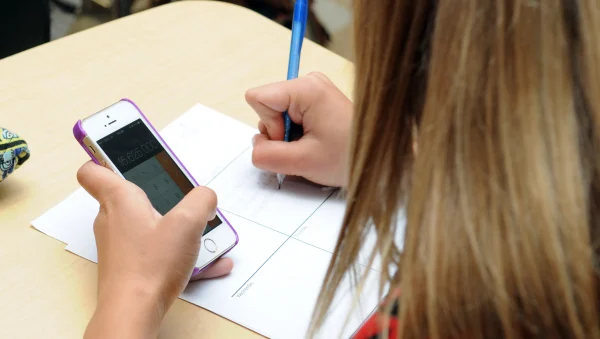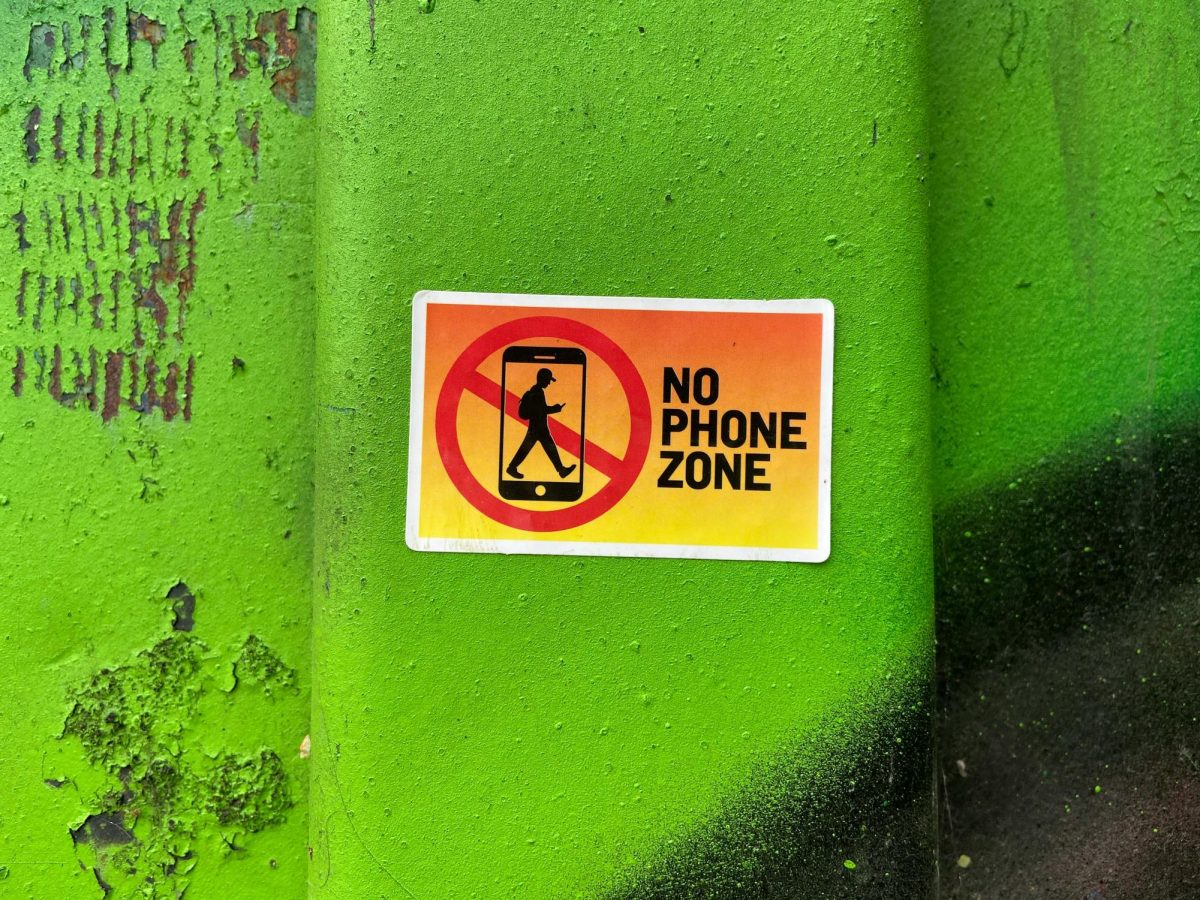

In today’s digital age, smartphones have become an integral part of our lives. From communication to learning, entertainment to organization, they serve as powerful tools for personal and academic use. However, one of the most debated topics in educational environments is the role of phones in schools. Should students be allowed to carry their devices throughout the school day, or should their usage be limited, or even banned? Let’s explore both sides of the argument.

“Our school allows teachers to set classroom policies and rules regarding cell phone usage within their own classes. Some teachers feel that phones are a distraction and should be kept put away either in backpacks or cell phone pouches in the classroom. Others allow for students to use them for classroom activities or academic purposes. Our job as school administrators is to help teachers ensure that their classroom policies and procedures are enforced in regards to cell phone usage,” Mr. McAdams said.

One of the strongest arguments for allowing phones in schools is that they can enhance learning. Smartphones are essentially handheld computers, and with the right apps, they can be invaluable educational tools. Some might even say they cannot learn without using the apps they need.

On the other hand, many schools argue that phones are a major distraction. In classrooms all over the world, it’s not uncommon to see students distracted by social media notifications, text messages, or the frequent play of mobile games during lessons. This constant beeping and buzzing can disrupt the flow of a class, making it harder for students to focus on the subject at hand. Research has shown that students who are always checking their phones in class are more likely to have lower grades than students who don’t.
“I think teachers take phones from students because they see them as a distraction and a disruption to class. I feel like phones at school and on campus are a good thing. They can be useful to students, but some students overuse their power with having phones on campus,” Sophomore Kariannah Cox said.

Seeing the pros and cons of having phones in school, many schools have opted for a balanced approach. Rather than banning phones entirely or allowing unrestricted use, some institutions have introduced rules that permit phones during certain times or for specific purposes. For example, phones might be allowed during lunch breaks or in emergencies, but not during class time. Additionally, some schools have implemented “phone-free zones” or designated areas where phones can be left during lessons. Students and teachers should both come to an agreement when it comes to students personal property and the teachers’ classrooms. If teachers give the same respect that students give to them, phones probably wouldn’t be as much of an issue.

What do you think about teachers taking your phone? Do you think they should let you keep them? Or do you like not having your phone to be able to focus on your work?





















Baylee • Apr 25, 2025 at 12:38 pm
I like this story because cell phones have always been a big debate in school.
Abnor Ahmeti • Apr 25, 2025 at 12:33 pm
I like how you expressed both the pros and cons of cell phones.
Alana Witt • Apr 25, 2025 at 12:26 pm
I love this story because it is a heavily debated topic in school and I think many of the students had different, well-spoken arguments.
Liliana Garcia • Apr 25, 2025 at 12:22 pm
I like that you show the pros and cons of allowing cell phones in the classroom.
Princess Lokossou • Apr 25, 2025 at 12:20 pm
I like how this shows both sides of how phones are good and how they aren’t. This was well put together. Good job.
Korbyn Curiel • Apr 25, 2025 at 12:19 pm
I like that you added in one opinion on the topic and another contradicting it
Yona Kim • Apr 24, 2025 at 12:53 pm
I agree that phones can enhance learning because for me, I needed a translator for the class when I first came here
Yazlin Orduno Hernandez • Apr 24, 2025 at 12:52 pm
i dont think they should ban phones
Mia Stewart • Apr 24, 2025 at 12:46 pm
Honestly agree and disagree. Phones can be distracting but they also help some students get done with their work by listening to music
My My Diep • Apr 24, 2025 at 12:45 pm
I like how this story talks about the point of view of phones being taken or not, that if the phone is a distraction to work to not.
cookie • Apr 24, 2025 at 12:41 pm
I love that you showed the pros and cons on the subject and got students perspectives aswell as teachers
Elias Jackson • Apr 24, 2025 at 12:36 pm
What I think is that teachers don’t have the right to just take my phone with out consent.
Kylah Reed • Apr 24, 2025 at 12:34 pm
This is a timeless topic for the new generation, so hearing from both students and staff gives you a new perspective.
Kariannah Cox • Apr 24, 2025 at 12:32 pm
I like your details and like your photos.